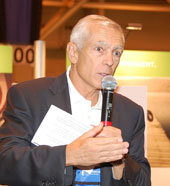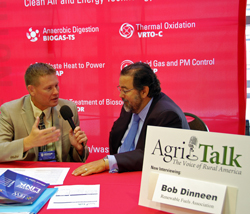It’s getting to be an all-too-familiar refrain: renewal of the federal $1-a-gallon biodiesel tax credit has hit another roadblock.
This article from Reuters says the measure, contained in a $126 billion tax bill, failed a procedural vote today in the U.S. Senate. But the measure’s sponsor has introduced a new version:
 Finance Committee Chairman Max Baucus was expected to offer a less-costly substitute to the bill that would reduce Medicare spending. A Baucus aide did not respond to questions about the possible survival of the biodiesel credit, a popular cause in many farm states…
Finance Committee Chairman Max Baucus was expected to offer a less-costly substitute to the bill that would reduce Medicare spending. A Baucus aide did not respond to questions about the possible survival of the biodiesel credit, a popular cause in many farm states…
A spokesman for the National Biodiesel Board, a trade group, said it appeared the biodiesel credit would be retained. “There’s been no objection to it,” said the spokesman.
Biodiesel production may drop to 15 percent of capacity because of loss of the credit, said the trade group.
USDA estimates that just more than 10 percent of all U.S.-grown soybean oil this year will be made into biodiesel … that’s if the biodiesel industry can survive all these delays.


 In his
In his  The
The  “Brazilian producers have no interest in exporting ethanol to Iran. Gen. Clark’s suggestion to the contrary is far from reality and rather surprising,” said UNICA’s Joel Velasco in
“Brazilian producers have no interest in exporting ethanol to Iran. Gen. Clark’s suggestion to the contrary is far from reality and rather surprising,” said UNICA’s Joel Velasco in 





 This edition of “The Ethanol Report” comes from the 26th annual Fuel Ethanol Workshop in St. Louis where
This edition of “The Ethanol Report” comes from the 26th annual Fuel Ethanol Workshop in St. Louis where  In this interview, Dinneen discusses those issues, including increasing the blend rate and renewing ethanol tax incentives, with a message to the industry of the critical need to work together. He also talks about the Global Rebound Effect theory that is being used to challenge EPA on the Renewable Fuels Standard, and he responds to an Environmental Working Group report out this week opposing incentives for ethanol.
In this interview, Dinneen discusses those issues, including increasing the blend rate and renewing ethanol tax incentives, with a message to the industry of the critical need to work together. He also talks about the Global Rebound Effect theory that is being used to challenge EPA on the Renewable Fuels Standard, and he responds to an Environmental Working Group report out this week opposing incentives for ethanol.